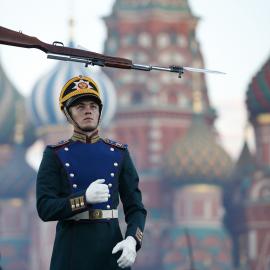To the Editor:
In his review of "Way Out There in the Blue: Reagan, Star Wars and the End of the Cold War", David Greenberg expounds his own views on why the Cold War ended and on the merits of the national missile-defense program ("The Empire Strikes Out," March/April 2000). However, as a reviewer he might have noted that my book is not about either of these subjects. It is instead about the Reagan administration and the way in which U.S.-Soviet policy in that period of the Cold War was shaped by domestic concerns and American history.
To the extent that Greenberg discusses my book, he gets everything backward. For example, he states that I portray Ronald Reagan as an "inept simpleton ... [who] lived in a celluloid dream-world ... in thrall to his fantasies," when in fact I go to some pains throughout the book to show that Reagan was no simpleton and no fantasist -- he was a man with extraordinary political skills and a deep understanding of the American mind. Regarding the Geneva summit, Greenberg complains that I do not understand that the "perception of progress warmed the atmosphere between the superpowers." In fact, that is my thesis -- and the theme of the last three chapters of the book.
Ronald Reagan was a master when it came to creating public perceptions. That is what interested me about him in the first place. But he had nothing to do with the formulation of policy. He had virtually no interest in policy -- as the memoirs of George Shultz and the testimony of many other of his officials show.
Greenberg to the contrary, the Gorbachev regime and the Reagan administration (dominated as it was by hard-liners), were very far apart at the Geneva, Reykjavik, and Washington summits. In all these cases -- and I would include the Moscow summit, too -- President Reagan managed to turn potential disasters into public relations triumphs in the United States. Those triumphs diffused U.S.-Soviet tensions and allowed Gorbachev the space to carry out his reforms.
Frances Fitzgerald
New York, New York
